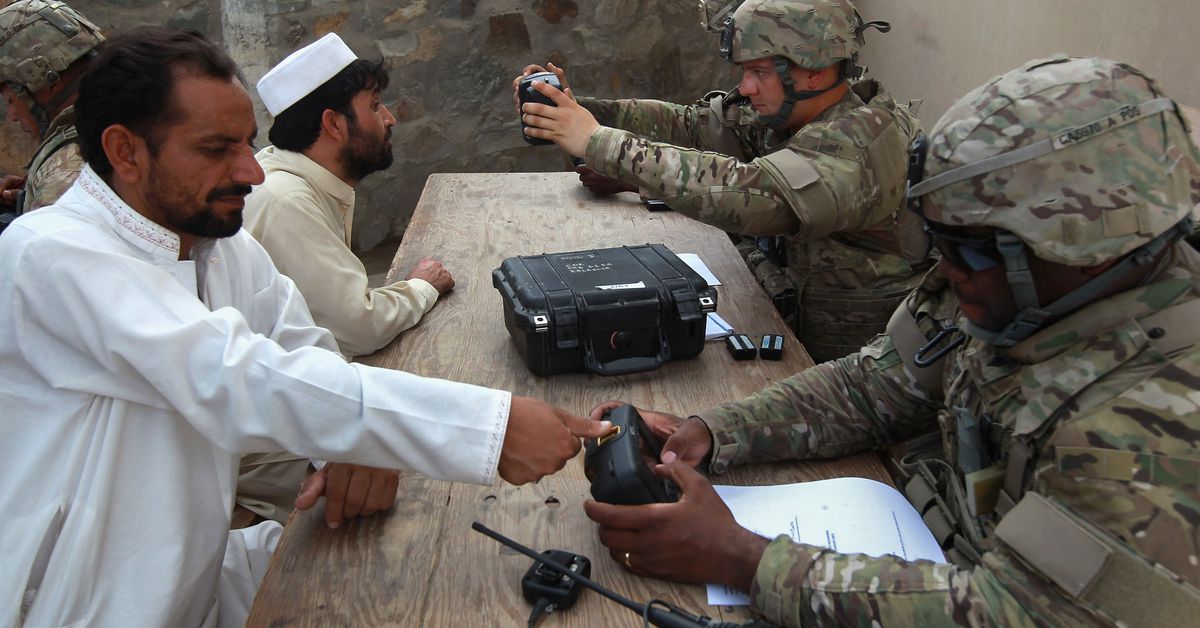The Taliban may have seized biometric data that can ID US allies in Afghanistan
Photo by John Moore/Getty ImagesThe US military created a vast database of biometric data — one report suggests it had a goal of 25 million entries — as part of its effort to track terrorists in Afghanistan. Now that...

The US military created a vast database of biometric data — one report suggests it had a goal of 25 million entries — as part of its effort to track terrorists in Afghanistan. Now that the US has withdrawn from the country, reports from The Intercept and Reuters suggest the Taliban could potentially use it to target allies left behind.
As The Intercept notes, the collection of biometric data was primarily billed as a military project, but Afghan civilians who worked for US embassies and the broader coalition government were reportedly also included in the database. The biometric information that could be on file for those people varies: the Handheld Interagency Identity Detection Equipment (HIIDE) used by the military collects everything from iris scans to fingerprints, along with identifying biographical information, according to the sources The Intercept spoke to. Those devices are now reportedly in the Taliban’s possession.
There’s some conflicting information on whether the Taliban can actually access and take action with the information that’s been collected, however. “The Taliban doesn’t have the gear to use the data,” a former Army Special Operations official told The Intercept. Accessing the biometric data that’s been collected might then fall to others, like Pakistan’s intelligence agency, Inter-Services Intelligence. According to Reuters, local reports said the Taliban has used government biometric data in the last five years to “target members of the security forces, checking their fingerprints against a database,” which only clouds things further.
However urgent the immediate risk is, the possibility of widespread abuse of the collected data makes evading biometric scanning and securing civilians’ digital identities all the more important. Human rights organization Human Rights First has published guides on biometric recognition and protecting digital identities in English, Farsi, and Pashto that should be a good place to start.

 Hollif
Hollif 
































